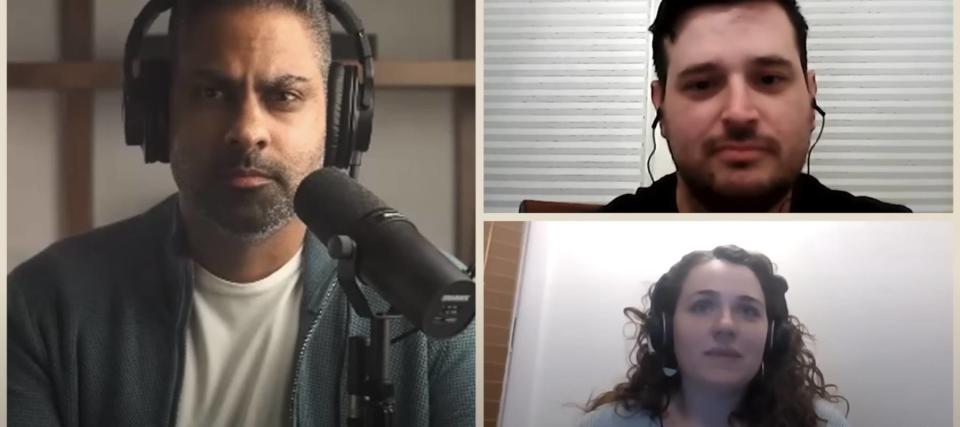‘I was truly shocked’: This young couple has $517,000 in debt and spends more than they make each month, but plan to retire early. Ramit Sethi gives them a harsh reality check
4 min read
Like many young Americans, 33-year-old David and 37-year-old Halima desire an early retirement. They say they’re actively working toward this goal, but personal finance expert Ramit Sethi discovered that their spending and borrowing habits don’t align with their ambitions. In fact, the couple spends more than they earn every month.
“I was truly shocked. Not just once — multiple times,” Sethi said after digging into the couple’s finances during an episode of his podcast “I Will Teach You To Be Rich.”
Don’t miss
“Aren’t you the one who called me and said, ‘I want to retire early’?” he asked David.
Here’s how the couple sabotaged their chances of early retirement.
Unrealistic with money
Financial Independence, Retire Early (FIRE) is a movement of people maximizing their income and minimizing their spending to quit the workforce years or even decades earlier than average retirees.
This typically involves aggressively cutting back on spending and saving up huge portions of your income. However, David and Halima don’t seem to be doing either of those things.
Instead, the couple earns $11,776 a month, after taxes, but regularly spends more than they earn. Sethi believes this is because both partners have an unhealthy relationship with personal finances.
“I see this theme of being unrealistic with money,” he said.
The couple also seems to be competing over who makes more money in the partnership. At the time of recording, both were earning high incomes, but Halima was earning slightly more.
“Part of me does feel like I should make more money than her, because it’s a cultural thing,” David said, referring to their Hispanic and Turkish backgrounds. “In both cultures, usually it’s the man that makes more money.”
Read more: Rich young Americans have lost confidence in the stock market — and are betting on these 3 assets instead. Get in now for strong long-term tailwinds
David’s past also influences his financial decisions.
“I was basically homeless at one point,” he said. He describes living in an abandoned house, showering at a gym and working multiple jobs to get himself out of the situation.
“I was so tired from working all those jobs I got into, like, two car accidents from falling asleep driving.”
Now, he believes he’s susceptible to “get-rich-quick schemes,” such as cryptocurrencies and multi-level marketing (MLM). The Consumer Awareness Institute analyzed over 350 MLM schemes and found that less than 1% of participants walked away with a profit. David came to the same conclusion, saying: “Get-rich-quick doesn’t really work.”
Meanwhile, Halima avoids discussing money.
“Finance isn’t something I’ve studied,” she said. “I don’t really have much experience with it, so to me it’s like a different language.”
The couple’s lack of budgeting and communication led to bad financial decisions, such as signing up for a vacation timeshare program that’s likely to cost $110,000 over the next 10 years, according to Sethi’s calculations.
“Every dollar you spend on this is one dollar not going toward your retirement,” Sethi told David.
Wake-up call
“Unfortunately, they need a true wake-up call to see what their future really looks like,” Sethi said of the couple at the end of the episode. He wants them to take decisive action to shift their trajectory.
In a follow-up, Sethi recommends speaking to a therapist to improve their perspective on money. He believes David and Halima can break their cycle of bad spending habits if someone can help them detach how they feel about money from their past experiences. He also recommends they talk to each other more often and openly communicate about each financial decision. Instead of competing to earn a higher income, he wants them to work as a team.
David and Halima need to reduce their spending, mitigate their credit card debt gradually, get rid of the timeshare, lower fixed costs to 60% of their income and start investing toward their goal of an early retirement.
“If they took this seriously … they have a chance to totally change the trajectory of their lives and the lives of their kids,” Sethi said.
What to read next
This article provides information only and should not be construed as advice. It is provided without warranty of any kind.
Discover more from Slow Travel News
Subscribe to get the latest posts sent to your email.



